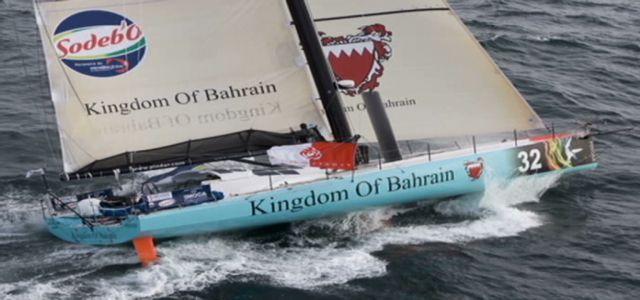- IranOther Issues
- December 9, 2009
- 8 minutes read
A Strait of Impasse or Opportunity?

When five British sailors were detained by the Iranian Navy and then released, it was another example of how conflicts, especially over vital straits for trade and commerce, can sometimes become opportunities in resolving centuries-old disagreements and differences. Evidently, the British sailors were sailing a yacht from Bahrain to Dubai when it strayed into Iranian territorial waters. Even though Iran initially detained the British sailors, they were later released. Britain was elated with the news and praised Tehran.
This incident, which occurred in the Persian Gulf and Strait of Hormuz, goes much deeper than British sailors crossing into Iranian waters. Tensions over Iran’s nuclear enrichment program-met with US-Israeli threats and large scale naval maneuvers, Iran’s deployment of anti-aircraft missile batteries in the Strait of Hormuz, Iran’s accusations that the West is trying to subvert its Islamic Republic, and renewed sanctions against Iran have all caused grave concern for the world. Since millions of barrels of oil pass through the Strait of Hormuz each day, this too has caused enormous anxiety.
Throughout the history of the world, though, straits (narrow waterways surrounded on both sides by large landmasses) have been the center of wars and conflicts. Since they have been used to transport foods, goods, services, and technologies, and since they have served as water “highways” for cultural interaction and communications, they have often been politicized and militarized. From a geopolitical viewpoint, straits have been both either impasses-a point at which no progress or agreement is made, or opportunities-an advantage or favorable action. What comes to mind are the Straits of Gibraltar, Lepanto, Malacca, and Dardanelles.
In 1100 BCE, the Phoenician seafarers from modern day Lebanon were the first recorded civilization to venture beyond the Strait of Gibraltar and trade with the British Isles. This trade nearly depleted the famed cedars of Lebanon. Many centuries later, Britain defeated a larger French-Spanish fleet at the Battle of Trafalgar. This dashed Emperor Napoleon’s invasion plans and assured the British Empire’s supremacy over the strait. When Britain, Spain and France lost many of their colonial holdings and became less absolute, the strait, which links the Mediterranean Sea and Atlantic Ocean, became demilitarized.
Philip V of Macedonia and the Aetolians signed a historic peace treaty in 217 BCE to promote trade through the Strait of Lepanto (Navpaktos), located off mainland Greece. But the rise of imperial powers challenged this peace. In 1571, Spain and Italy destroyed Selim’s (Suleiman’s third son) naval fleet in this strait, bringing an end to the Ottoman’s advanced sea power. Only after the World War I and II did the straits experience peace. For many years, nations also fought over the Strait of Malacca in hopes of monopolizing the Spice trade. The Dutch and British finally signed a treaty in 1824 ending a bitter contest over this waterway connecting the Indian Ocean and the South China Sea.
The Dardanelles Strait, linking the Mediterranean and Black Seas, was the scene of many naval engagements. A treaty between Britain and the Ottomans in 1809 declared that no warships of any country should pass through the straits.(1) The 1841 Straits Convention reinforced the absence of warships, as long as the Ottomans were at peace and with consent of several other nations.(2) After World War I, the Treaty of Sevres demilitarized the Dardanelles Strait and declared it an international zone. Mustafa Kemal and Turkey Nationalism modified the Sevres Treaty with the Montreaux Treaty. It granted Turkey the right to either permit or refuse passage of warships through the straits.(3)
The Bosphorus Strait too has experienced its share of remilitarization and demilitarization. Because it links the Black Sea to the Mediterranean Sea, and since it lies between Eastern Europe and Western Asia, empires have fought over the strait, specifically Russia and Turkey. Several international peace treaties, however, have been signed and governs the vessels that travel through the strait. Under the Montreux Convention, the strait is treated as an international shipping lane. It also allows Turkey to retain the right to monitor naval traffic.
Between the southern coast of Iran and Saudi Arabia is the Strait of Hormuz. It connects the Persian Gulf with the Gulf of Oman and Indian Ocean. Like other straits in history, it too has witnessed wars and bloody conflicts. In 226 CE, Ardashir I overthrew the Parthian Kingdom. Under Arab influence, the Strait of Hormuz became an important trading center and drop-off point for an overland trade route to India. During the 16th and 17th Centuries, the British and Portuguese Empires fought for control of the strait. Their goals were to monopolize trade and weaken Arab businesses.
While most straits today enjoy peace and security, and while world basks in a post-World War and Cold War context, the Strait of Hormuz continues to suffer untold tragedies. The difference has been due to crude oil, strategic shipping lanes, and the so-called Global War On Terror. Economic competition and usury, military alliances, and an endless supply of weapons and warships have brought political instability to the region. The West has also toppled popular governments and fought pre-emptive wars, even threatening the use nuclear weapons to protect what they believe is their vital interest: oil.
Can the nations bordering the Persian Gulf and Strait of Hormuz learn from the mistakes of past civilizations? Will the West de-monopolize its interests in the region and pursue a road-map to de-imperialize their holdings in the Persian Gulf? The first step will have to be a strong commitment from all parties to completely demilitarize the Persian Gulf and to stop their belligerent rhetoric. Another long-term goal should be declaring the Persian Gulf and Middle-East a nuclear-free zone, including Israel. Like other straits, foreign warships traveling through the Strait of Hormuz should be closely monitored by proximal nations.
The nations involved in creating a strait of impasse might also want to try and regain the true meanings of their monotheistic faiths. For the various Muslim groups, Islam says to, “Be just: the unjust never prosper. Be merciful: slay neither old men, children, nor women. Destroy neither fruit trees, grain, nor cattle.” Does this also include straits and gulfs? For Christians and Jews, it may entail remembering that “God created the heavens and earth,” and then created humankind in His image to be stewards of the land and water, not monopolists and murderers!
By releasing the detained British sailors, Iran made a courageous gesture. Will other nations capitalize on this act and make overtures of goodwill? In doing this, the Strait of Hormuz will become a strait of opportunity, that is, a strait that increases cultural awareness and understanding, and a water “highway” encouraging a peaceful exchange of ideas, goods, faiths, and services for the benefit of humankind. Iran’s leaders have said, “Historically, whoever made friends with Iran saw a lot of opportunities.”(4) Whoever made friends with straits, including demilitarizing and de-imperializing them, saw a lot of good possibilities too. The world could use this kind of “history repeats itself,” could it not?
Dallas Darling is the author of Politics 501: An A-Z Reading on Conscientious Political Thought and Action, Some Nations Above God: 52 Weekly Reflections On Modern-Day Imperialism, Militarism, And Consumerism in the Context of John‘s Apocalyptic Vision, and The Other Side Of Christianity: Reflections on Faith, Politics, Spirituality, History, and Peace. He is a correspondent for www.worldnews.com. You can read more of Dallas’ Daily Digest at www.beverlydarling.com and wn.com//dallasdarling.)
Notes:
(1) Axelrod, Alan and Charles L. Phillips. Encyclopedia of Historical Treaties And Alliances, Volume II from the 1920’s to the Present. New York, New York: Facts On File, Inc., 2001. p. 462.
(2) Ibid., p. 463.
(3) Ibid., p. 464.
(4) Burns, Robert and Anne Gearan. http://www.wtop.com. September 23, 2009. p. 1.
Source:
http://www.middle-east-online.com



